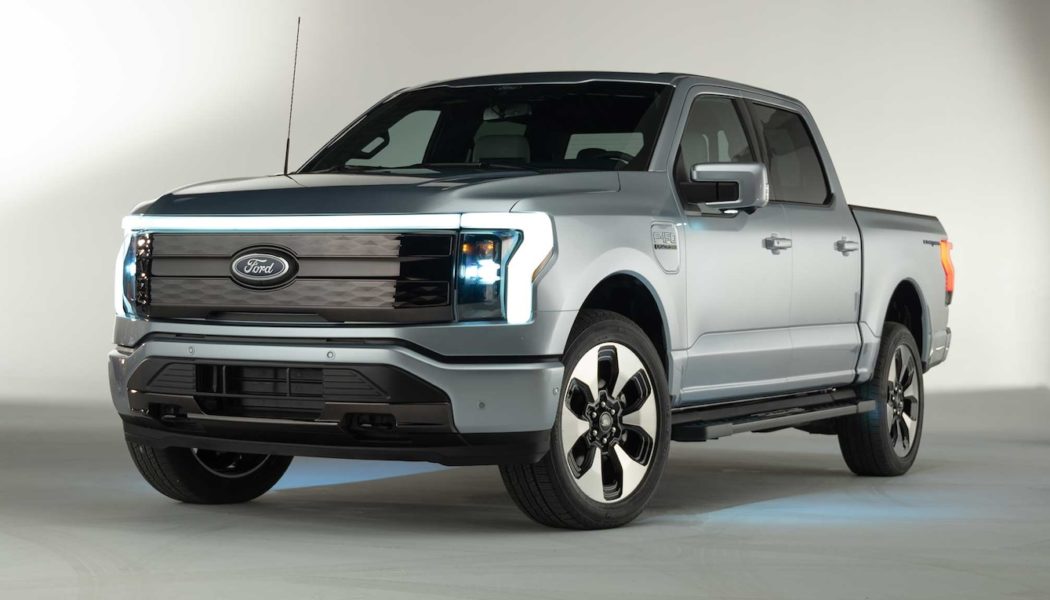Lightning is back. Except, the 2022 Ford F-150 Lightning shares absolutely nothing with the original Lightning pickups that first debuted in the early 1990s. Even the old sport truck’s iconic Lightning badge has been redesigned for the all-new EV pickup truck by the same name. And though it is often said history repeats itself, in this case history has reincarnated itself into something somehow both more powerful and less sinister.
The Power of Lightning
The original 1993 Ford Lightning was, according to our archives, “a Mustang Cobra with a cargo bed.” It had a 5.8-liter V-8 under its huge hood that made 240 horsepower—which in today’s context isn’t much, but in 1993 it was plenty. The Lightning also was a relatively low-key project that was commissioned by Ford’s Special Vehicle Team, or SVT department. It was a lower, faster, much more hardcore version of the F-150 that was only available with a regular cab.
If you’ve read anything about the new Lightning, you’ll have already realized that it and the original Lightning could not be any more different in terms of philosophy, physical appearance, and intention. The new Lightning is an EV that’s not only kinder to the environment but way more powerful, too, boasting up to 563 horsepower and more than 775 lb-ft of torque (those are the figures Ford is targeting, but are not yet final) when specified with the biggest battery available.
Beneath the new F-150 Lightning’s hood sits not a V-8—you already knew that, though—but … nothing. There is only a gigantic frunk capable of holding up to 400 liters of stuff. It’s accessed via a yawning opening left behind when the hood and grille motor up and out of the way. Unlike the original, it comes only in the F-150’s available four-door SuperCrew body.
More Lightning, More Truck
Ford’s electric F-150 can tow up to 10,000 pounds, can haul up to 2,000 onboard, and has an inverter that can power your entire house in the event of a blackout with up to 9.6 kW of output. The 1993 F-150 Lightning couldn’t power any accessories beyond its cigarette lighter, and it could only tow half what the new Lightning can. For context, its max tow rating of 5,000 pounds was less than half of what a properly equipped F-150 could lug in the early 1990s, which had a max tow rating of 12,000 pounds.
Heck, the new Lightning out-tows the gas-fed original despite using an independent rear suspension instead of a more stout live axle—a switch necessary for making room between the rear wheels for the aft drive motor and batteries.
It’s also tiny when compared to the new car. The new Lightning is 3.5 feet longer than the original Lightning and more than a foot wider than its V-8-powered predecessor. In fact, the new Lightning is so much larger than the original that if you were to tip the original on its side, the new truck would still be taller.
Ford’s newest EV is a bigger, more capable, faster, and somehow more friendly truck than the original Lightning ever was. As we enter the age of EV trucks, we shouldn’t forget how far they’ve come, and how much further they have still yet to go.







![HHW Premiere: Rackboy Cam “All I Know” [LISTEN]](https://www.wazupnaija.com/wp-content/uploads/2021/08/hhw-premiere-rackboy-cam-all-i-know-listen-327x219.jpg)


